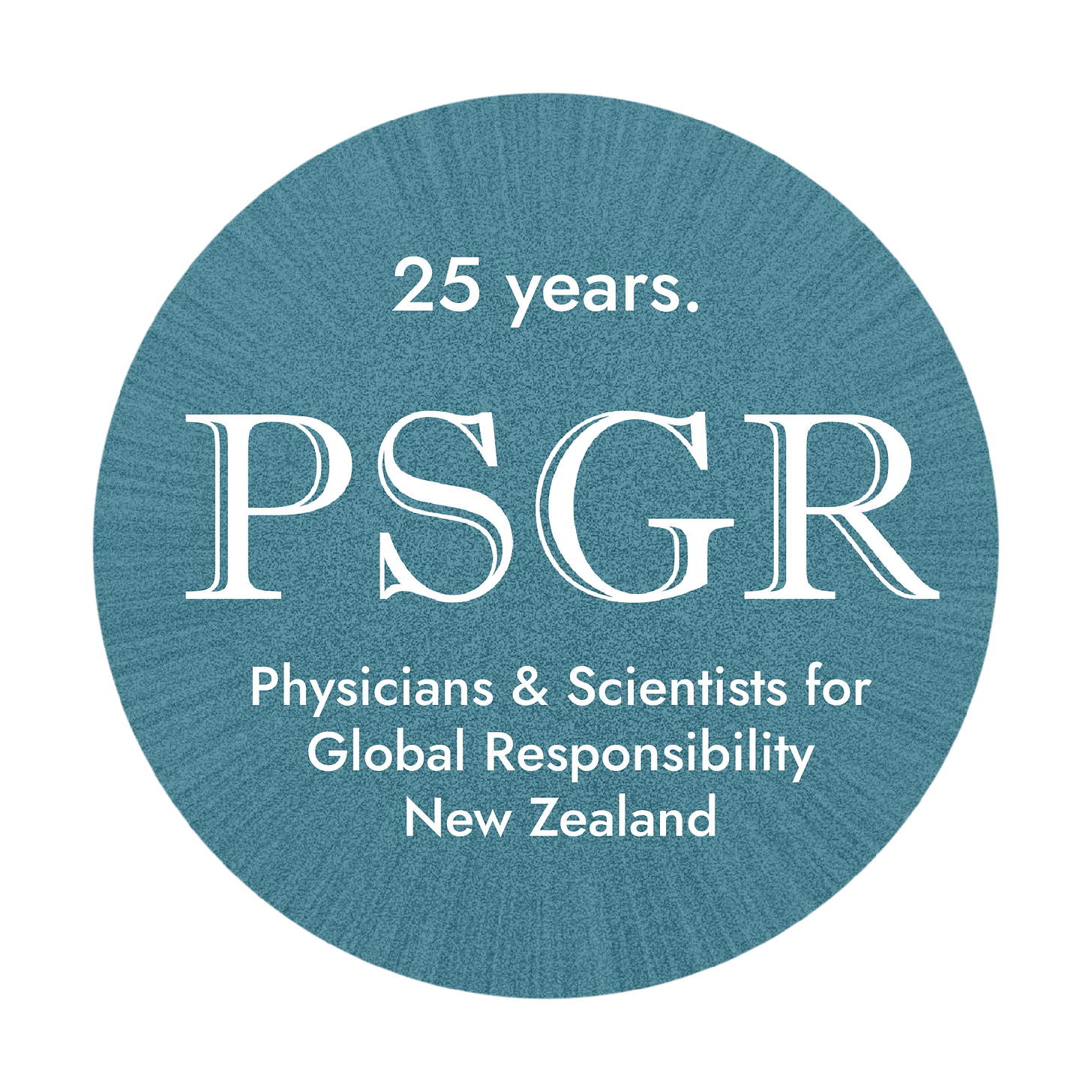Welcome to complex, open-ended & challenging discussions.
When biological systems 'butt up' against technologies the effect will always be uncertain. How we deal with this uncertainty & in whose interest decisions are primarily made - is of the essence.
Welcome to the Physicians and Scientists for Global Responsibility New Zealand Charitable Trust (PSGR) Substack page.
PSGR’s Substack is intended as a forum to address those open-ended questions that relate to human and environmental health. This forum is in place to consider the scientific evidence that sheds light on the safety of technologies, emissions and exposures that surround us, even here in New Zealand.
In working with doctors, scientists and New Zealand society to consider issues of science, medicine and technology, we believe it is appropriate to consider the quality of policy and regulatory standards that authorise these technologies, their emissions, and public exposures.
All writing on these pages must be thoroughly referenced.
As such, these pages are intended to help doctors, scientists and the New Zealand public discuss complex and at times nebulous issues that are often left out of mainstream media, and avoided by policy-makers and the judiciary.
What is the heart of the matter is the challenge for humanity to understand what it means to protect biological health, so that we may then take steps to protect biological health.
Currently, resources are unlikely to be dedicated to open-ended and interdisciplinary scientific research that can shed light on how technologies might harm biological life.
Shedding light on how regulatory standards that might be out-of-date; not fit for purpose; and which may result in dependence on industry-supplied data, can be controversial. It can be politically difficult to contradict the claims and views that are held by the institutions concerned.
Yet if monitoring of technologies emitted into the environment is not undertaken, and our regulation does not keep up with the latest scientific evidence in the peer reviewed literature, we cannot claim to steward human or environmental health. If these gaps remain, the contradictions can grow, and trust in regulators and governments may decline.
In the ‘ignorance gap’ society as a whole will then fail to protect human and environmental health. In the months and years that we fail to understand, the emissions and exposures will continue to scale up.



